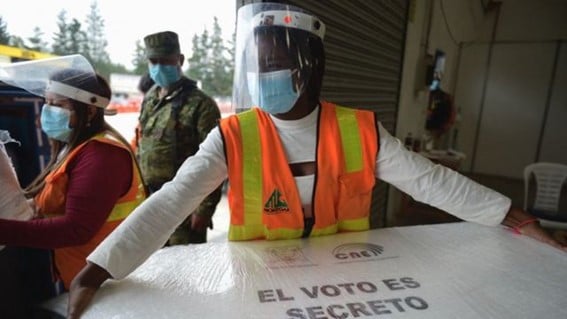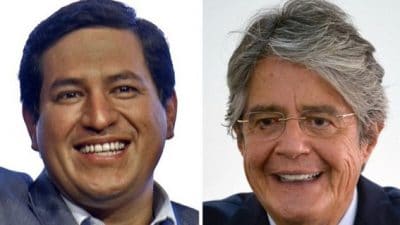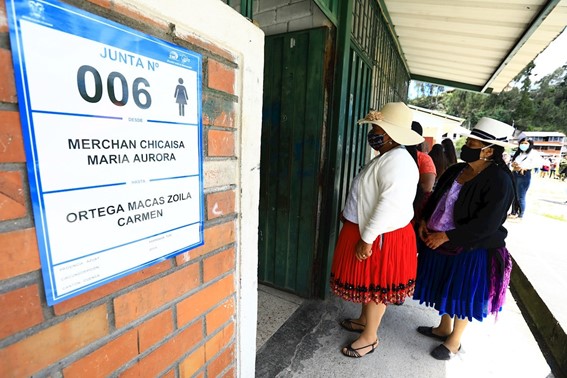
Children of Exile: The Births “Sowing Hope” in the Camp of Nicaraguan Farmers

PUBLICIDAD 1M
PUBLICIDAD 4D
PUBLICIDAD 5D
Ecuadorians are voting today for a new president. The choice couldn’t be more pronounced

The vote is secret. Ecuador goes to the polls to elect a new president on Sunday April 11, 2021. Photo: Getty Images
Ecuadorians are voting today for a new president. The choice couldn’t be more pronounced. On the one hand left wing economist Andres Arauz and on the other conservative banker Guillermo Lasso.
Arauz, 36, is the candidate of former president Rafael Correa (2007-2017), and Lasso, 65, is making his third attempt to become president. Correa was sentenced in 2020 to eight years in prison for corruption during his presidency. He lives in exile with his wife in her native Belgium.
Like Lula da Silva in Brazil, and Evo Morales in Bolivia, Correa may see his ally winning as a chance to reenter Ecuadorian politics.

Candidates Andrés Arauz y Guillermo Lasso. Photos: Getty Images
Ecuador is facing a serious economic crisis and the new leader will take office on May 24. Current President Lenin Moreno did not seek reelection. He is under fire from all sides for his handling of the Covid-19 pandemic including vaccines, and the economy.
In the first round of voting in February Arauz came in first with 32.7 percent while Lasso had 19.7 percent, barely edging out indigenous candidate Yaku Perez 19.39 for second place and a ticket on today’s runoff.
Perez, who claimed fraud in Lasso edging him out for second place, does not support either of the two candidates in today’s runoff. He urged his followers to cast blank votes on Sunday, noted the BBC.

Women in line to vote in Cuenca, Ecuador during the first round held on February 7th. Photo: Efe/ Robert Puglla
If elected, Arauz would be the country’s youngest president ever. He held numerous key posts as a minister under Rafael Correa. He promises a return to some of Correa’s populist ways. He is offering a $1,000 dollar stimulus check to a million needy families.
Arauz also promises $3 billion dollars in “productive loans” mainly for entrepreneurs, young people, indigenous communities, and women victims of violence and farmers.
Lasso represents Ecuador’s business class, and he promises to veer away from leftist policies he says have weakened the economy. He proposes raising the minimum wage from $400 to $500 USD, the currency used in the South American country. He calls for tax cuts for small businesses and assistance for new startups.
Both candidates propose to speed up the vaccination campaign. They also agree that more must be done to fight drug trafficking bands operating on the border with Colombia and Peru.
Archivado como:
PUBLICIDAD 3M
PUBLICIDAD 3D